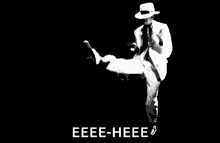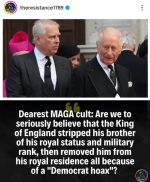Arguments that attempt to suggest that Tariffs are a tax are uneducated, ignorant and laughably dumb.
When the Supreme Court heard arguments last week on President Trump’s emergency tariffs, plaintiffs opposed to the tariffs insisted, “Tariffs are taxes.” That framing gets history and the law wrong.
Tariffs are NOT taxes. They are instruments of foreign commerce regulation and national defense, long recognized as distinct from Congress’ domestic taxing power. That distinction is not a technicality; it is constitutional with deep roots.
The constitutional test for distinguishing a tax from a regulatory duty is simple. A tax raises general revenue for domestic spending; a tariff regulates foreign commerce. Any revenue that results from a tariff is incidental to its regulatory purpose, much like fines or license fees that accompany environmental or banking rules. Tariffs are thus a classic expression of the power to regulate foreign trade, not the power to tax American citizens.
At the Constitutional Convention, the framers granted Congress the power to impose “Taxes, Duties, Imposts, and Excises.” The separation was deliberate: Duties and imposts were not taxes. They were instruments of trade and national policy, not domestic revenue in the modern sense.
In 18th-century language, imposts referred to what we now call tariffs. The first Congress enacted the nation’s first imposts in 1789, levying duties on imports including British textiles, Caribbean sugar and European glassware. They were imposed in part for “the encouragement and protection of manufactures,” as the statute itself declared.
When President Lincoln later championed “protective tariffs,” he referred to them as “a system of defense,” not a revenue scheme. That founding logic has carried forward into modern law.
In Federal Energy Administration v. Algonquin SNG (1976), the Supreme Court unanimously upheld President Ford’s import fees on foreign oil under Section 232 of the Trade Expansion Act. Opponents claimed those fees were taxes; the court disagreed. As the justices explained, “The imposition of a license fee on imports is a method of achieving the permitted end — adjustment of imports — no less than the use of quotas.”
At the Supreme Court, a debate over whether tariffs are taxes
Spoiler alert: They're notWhen the Supreme Court heard arguments last week on President Trump’s emergency tariffs, plaintiffs opposed to the tariffs insisted, “Tariffs are taxes.” That framing gets history and the law wrong.
Tariffs are NOT taxes. They are instruments of foreign commerce regulation and national defense, long recognized as distinct from Congress’ domestic taxing power. That distinction is not a technicality; it is constitutional with deep roots.
The constitutional test for distinguishing a tax from a regulatory duty is simple. A tax raises general revenue for domestic spending; a tariff regulates foreign commerce. Any revenue that results from a tariff is incidental to its regulatory purpose, much like fines or license fees that accompany environmental or banking rules. Tariffs are thus a classic expression of the power to regulate foreign trade, not the power to tax American citizens.
At the Constitutional Convention, the framers granted Congress the power to impose “Taxes, Duties, Imposts, and Excises.” The separation was deliberate: Duties and imposts were not taxes. They were instruments of trade and national policy, not domestic revenue in the modern sense.
In 18th-century language, imposts referred to what we now call tariffs. The first Congress enacted the nation’s first imposts in 1789, levying duties on imports including British textiles, Caribbean sugar and European glassware. They were imposed in part for “the encouragement and protection of manufactures,” as the statute itself declared.
When President Lincoln later championed “protective tariffs,” he referred to them as “a system of defense,” not a revenue scheme. That founding logic has carried forward into modern law.
In Federal Energy Administration v. Algonquin SNG (1976), the Supreme Court unanimously upheld President Ford’s import fees on foreign oil under Section 232 of the Trade Expansion Act. Opponents claimed those fees were taxes; the court disagreed. As the justices explained, “The imposition of a license fee on imports is a method of achieving the permitted end — adjustment of imports — no less than the use of quotas.”





